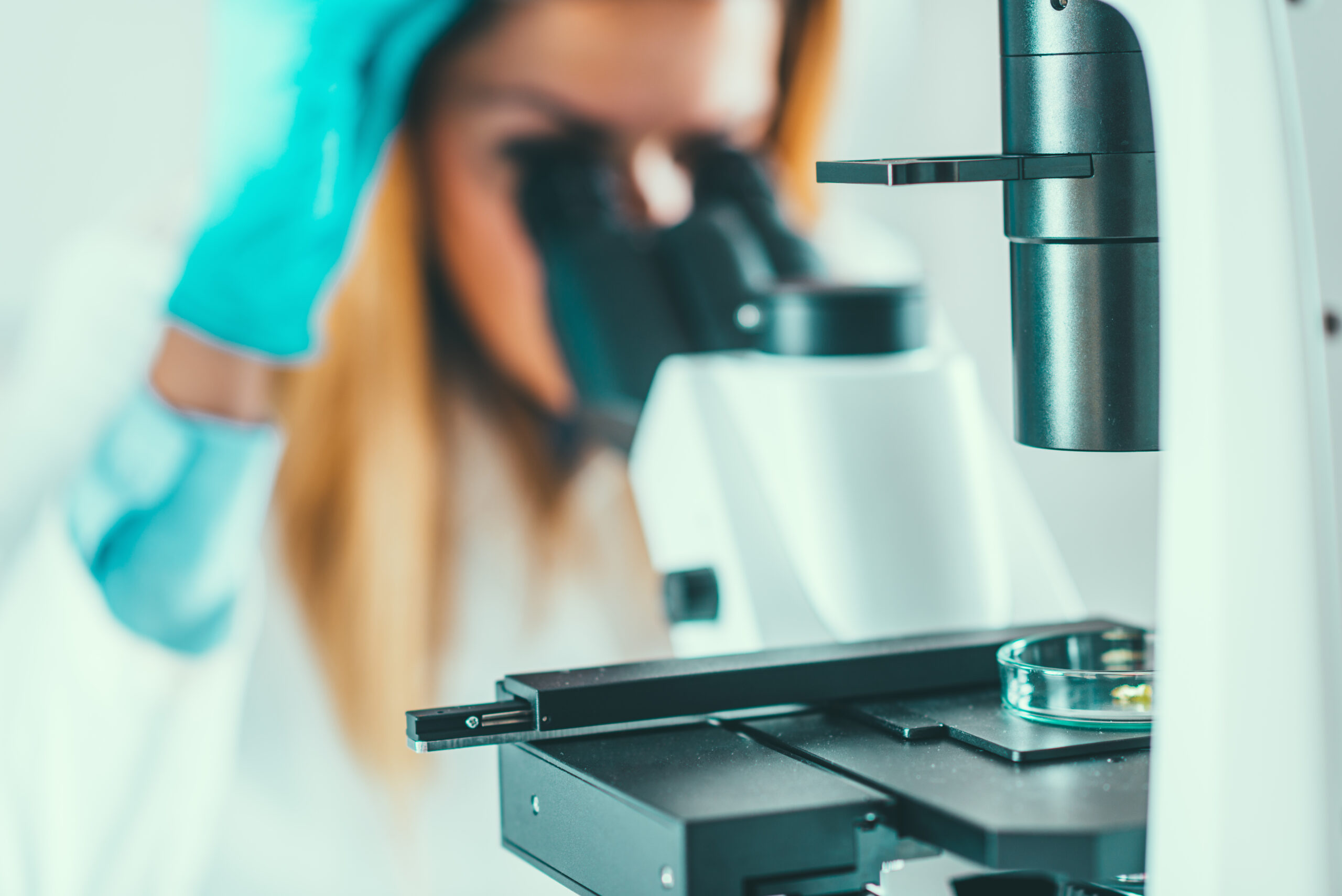Have You Ever Wished For A Blueprint For Your Body? Take A Look At Your Epigenetics!
The word Epigenetics may sound science-y and overwhelming, but I promise you, understanding this concept will leave you with a sense of empowerment. Many of my patients share that doing an epigenetic study felt like finding a missing puzzle piece in their understanding of their bodies and their health journey. In this blog post, you’ll learn about what exactly epigenetics are, why they are so exciting, and I’ll provide some examples of common epigenetic hiccups I see in my patients, and how they guide us on their health journey:
Like finding a missing puzzel piece in their understanding of their bodies and their health journey.
What Are Epigenetics?
Let’s jump in with some science, and hang with me here because I promise it’s worth understanding: Epigenetics refers to the study of changes in gene expression that do not involve alterations to the underlying DNA sequence—a layer of regulation that sits “on top of” genetics, hence the prefix “epi-” which means above or over. These epigenetic changes can influence the activity of genes, turning them on or off, increasing or decreasing their normal activity, all without changing the DNA sequence itself. This means that while our genetic code (the DNA sequence) provides the blueprint for our bodies, epigenetics can modify how that blueprint is read and expressed in different cells and under different conditions.
Unlike our DNA sequence, which is largely fixed from the moment of conception, epigenetic changes are dynamic and can be influenced by a variety of factors including our environment, lifestyle, and even our experiences. Factors such as nutrition, stress, physical activity, exposure to toxins, and aging can all lead to epigenetic modifications that can affect our health and how our genes are expressed.

Why Are Epigenetics So Exciting?
If you’re on any kind of healing journey, understanding that your gene expression can be influenced should be a very exciting revelation – because it gives us control back. We can change the way our genes express themselves by controlling things like nutrition, supplementation, lifestyle etcetera. And not just that, but knowing our epigenetics is kind of like having a cheat sheet for our bodies – if we know we have certain epigenetics, we might know that we are more prone to adverse effects from certain medications… This is important information to have!
Epigenetics & The Terrain-Based Approach to Health
Here at Zuza’s Way we practice a terrain-based approach to health, which considers the body’s internal environment or ‘terrain’ as being a key factor in determining our health. This translates to accepting that your dis-ease was probably not just bad luck. This might feel like a gut punch, but hang with me here. If it wasn’t just bad luck, that means that there were reasons for your disease manifesting. And if there are reasons, there are specific things we can target to return your terrain to one that fosters health.
This concept aligns perfectly with epigenetic science, as it emphasizes the importance of nurturing a healthy terrain through lifestyle and environmental choices to promote optimal gene expression. By focusing on creating a balanced and supportive internal environment, we can potentially mitigate the risks of developing various health conditions, including cancer.
Let’s Take A Look At Some Real Life Examples Of Some Epigenetic SNPs I Frequently See In My Patients:
PON1:
The PON1 gene codes for an enzyme that plays a crucial role in breaking down certain toxins, including pesticides like glyphosate. Individuals with variations in the PON1 gene have a reduced ability to detoxify glyphosate, leading to an accumulation of toxins in the body. Research shows that individuals with a PON1 mutation have an 82% higher risk of organophosphate toxicity compared to people without it – and if you are Caucasian – your risk of toxicity jumps up by 148%! This accumulation can contribute to various health issues – including cancer.
However, if you know that you have a mutation in your PON1 gene, you can take action. Quercetin has been shown to increase PON1 function by as much as 200%. Quercetin is not safe with every chemotherapy treatment so make sure you check with me on your 1:1 time before starting this supplement if you are in active treatment.
MTHFR:
The MTHFR gene is critical for a process known as methylation, which is essential for DNA repair, neurotransmitter synthesis, and detoxification. You can probably see why a mutation in this gene would be relevant in a cancer diagnosis. Individuals with certain MTHFR variations also experience higher rates of anxiety, depression, and other mental health issues, as well as trouble trying to conceive.
What I really want to stress here is that knowledge is power, because there are ways in which we can encourage the body to methylate more efficiently, meaning that we can increase our ability to methylate, repair DNA, and detoxify!
However, if we don’t have this information about our epigenetic makeup, we can’t do anything about it… And that would be a real shame!
COMT
The COMT gene is involved in the breakdown of estrogen and other catecholamines. Individuals with certain COMT gene variations may have a slower metabolism of estrogen, leading to an accumulation of harmful estrogen metabolites. This can increase the risk of estrogen dominance, characterized by symptoms such as weight gain, mood swings, and, in more severe cases, hormonal cancers like breast cancer.
Individuals with specific COMT variations should be cautious with hormone replacement therapies, including birth control and bio-identical hormones, as they won’t be able to metabolize them efficiently.
For those with COMT mutations, avoiding xenoestrogens, which are found in many plastics, personal care products, and pesticides, becomes extra crucial for maintaining hormonal balance.
Conclusion:
Remember, that the study of epigenetics is all about gene expression. Understanding this puts the ultimate power back in your hands because what this means is that it’s not just bad luck – there are actual factors that you have the power to influence that determine your health. When you are aware of your unique epigenetic makeup, you can influence the way your genes are expressed through things like reducing your toxin exposure, lifestyle modifications, nutrition, and key supplements. Epigenetics guide our every step with our patients at Zuza’s Way.
The Work Isn’t Done: The Importance Of Detoxing After Remission
In the aftermath of cancer treatment, the focus often shifts to recovery, gut healing, and strengthening the body’s natural defenses. One critical aspect of this phase is detoxification, especially after the heavy toll that treatments like chemotherapy and radiation can take on our body’s detox pathways and total toxic load. Toxin exposure likely played at least a small role in your diagnosis, and we want to resolve this area in order to set the scene for a continued long and healthy life. Understanding how to support detoxification can be a game-changer for anyone in remission, perhaps especially pediatric cancer patients whose bodies are even more susceptible to damage from toxin exposure.
Understanding how to support detoxification can be a game changer for anyone in remission.
The Importance of Detoxification
Detoxification is more than just a buzzword; it’s a vital process that our bodies perform continuously. Our liver, kidneys, lymphatic system, skin, and even our respiratory system work in harmony to eliminate toxins and waste products that accumulate from our metabolism, environment, and yes, cancer treatments – which, while lifesaving, are incredibly toxic.
My favorite metaphor is the fishbowl metaphor. Imagine the patient as a fish in a fish bowl. The water in the fishbowl is getting pretty murky – it contains a lifetime of toxin exposure. Now, the fish gets sick. So the doctors take the fish out of the bowl, and bring it to the hospital, where they do surgery, chemotherapy and more to heal the fish. The fish gets to ring the bell, and then they plop him right back in that same murky water where he continues to live as he did before he got sick. Do you think the fish is going to stay healthy for long?
Supporting the Liver:
The liver is the cornerstone of our body’s detoxification system, processing everything from metabolic waste to external toxins. After treatment, supporting the liver’s function can help alleviate the burden of chemotherapy and other medications. Castor oil packs, known for their anti-inflammatory and liver-supportive properties, can be a super simple and gentle, yet effective way to aid liver detoxification. Similarly, key supplements like glutathione can play a crucial role in neutralizing toxins and facilitating their elimination – especially for patients who have certain epigenetic SNPs that influence their body’s own glutathione production.

Kidney Care:
Our kidneys are vital in filtering waste from our blood and excreting it through our urine. Hydration is key to supporting kidney function, especially post-treatment. Encouraging the intake of clean, filtered water can help flush out toxins and ensure that the kidneys are working efficiently. Certain herbs and foods are also key for kidney health and this is something we provide individualized guidance on
Skin Detox: Sweating It Out
The skin, our largest organ, plays a significant role in detoxification through sweating. Practices like sauna use, particularly infrared saunas, can stimulate sweating and help release stored toxins. Dry brushing and regular physical activity also promote skin detoxification by enhancing circulation and encouraging sweat.
Nutrition Matters!
What we eat significantly impacts our detoxification pathways. Incorporating detox-supportive foods into the diet can bolster the body’s natural detox processes. Beets and greens, rich in antioxidants and nutrients, support liver health and methylation, a critical process in detoxification. Cruciferous vegetables like broccoli and kale activate detoxification enzymes in the liver, while dandelion greens support both liver and kidney health.
Tailoring Detox to Individual Needs
It’s important to remember that detoxification is not a one-size-fits-all process. Individual needs, especially in pediatric cancer patients, can vary widely based on their treatment history, epigenetics, and overall health. Epigenetics can offer insights into specific detox pathways that may need more support, allowing for a more personalized detox plan.
For more on epigenetics, read this blog post!
A Continuous Journey
Detoxification after cancer treatment is not a one-time event but a continuous process that we aim to integrate into your lifestyle as a ‘new normal’ aimed at maintaining optimal health. We will keep up with regular testing and occasional adjustments of detox strategies. The goal is a long, healthy, happy life!